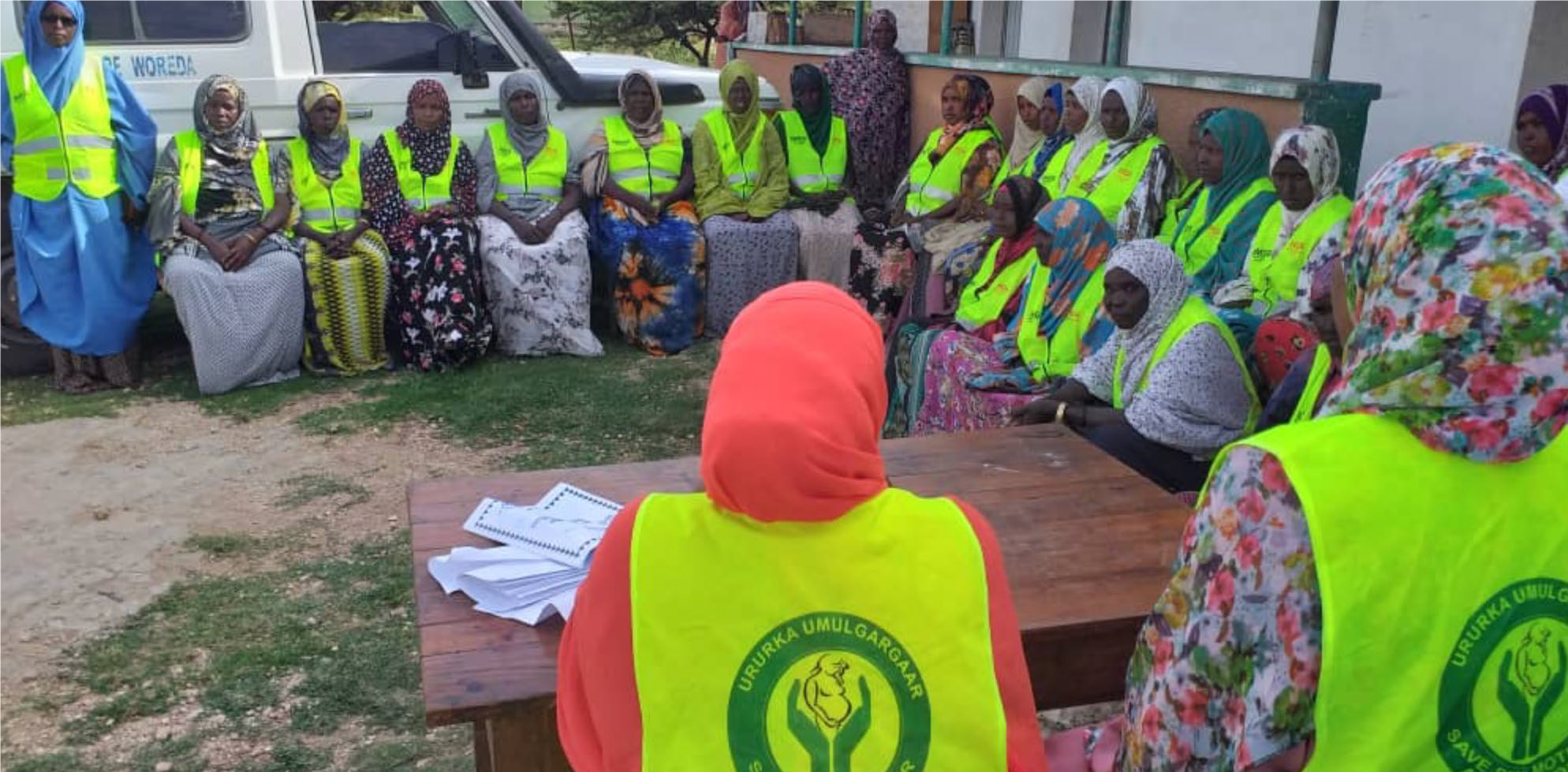Civil Engagement for Community Health Services Health service delivery gap is pronounced in certain areas of Somali Region where there is a weak link between communities and health posts or health centres. Even when health extension workers are active and present, in some communities, they are inundated with competing responsibilities and thus, are unable to provide health information and to connect the community to the closest health service centre. Unfortunately, communities lack awareness on the importance of seeking health services that are readily available to them. As a result, many suffer from preventable diseases, particularly women and children.
Such health service communication and delivery gaps are addressed by Umulgargar, a homegrown indigenous Community Based Association (CBA) in Awbare Woreda, an area with a population of 373,238 in Somali Region. The USAID Transform HDR activity, led by Amref Health Africa, engages the 50 women members of the Umulgargar CBA, equipping them to create linkages between the community and the Awbare Health Centre.
Working closely with Umulgargar has enabled Transform HDR to reach community members with essential health services. This approach provides an alternative structure to engaging the wider community and leads to better communication of health messages to the community on family planning, pregnancy, the benefits of child delivery at health facilities, the importance of breastfeeding and hygiene. The platform increases community members’ engagement and accountability and leads to better successes of referrals due to closer follow-ups. With minimal support, Umulgargar’s members travel miles to reach community members. Most importantly, Umulgargar women engage their community in decision-making on the services provided, resulting in a sense of ownership. They even go further, all 50 members contribute ETB 50 each month to support mothers who face complication during pregnancy and delivery; the association covers transportation fees to and from the health facilities, and in some cases, extends support by purchasing household commodities. At Awbare Health Centre, the association members successfully established one Maternal Waiting Home through money they contributed; Transform HDR matched their effort by providing basic equipment.
Transform HDR strengthened the capacity of Umulgargar’s women, equipping them with community mobilization and health messages communications skills. It also provided health communications materials on ANC, delivery, postnatal, immunization and Family Planning, Pregnant Mothers Conference (PMC) national guide, and audio-visuals in Somali language to facilitate mother support groups and PMC sessions. Transform HDR also covered minimal expenses of some of the Umulgargar members to encourage them to expand their service model to neighbouring kebeles and woreda. In the past six months, this partnership has resulted in the referrals of 1,800 mothers for antenatal care, 900 mothers for institutional delivery, 324 mothers for family planning and 2,400 children for immunization. To date, Transform HDR has also provided training to 322 individuals (55% female) on Reproductive, Maternal, Neonatal and Child Health (RMNCH) and health systems strengthening in Awbare woreda. Awbare Health Centre is also one of the 24 facilities selected as Centres of Excellence, which has received technology solutions to improve quality of care during antenatal care, delivery and new-born care.
The partnership that started with Umulgargar has now been expanded to four more kebeles: Jaare, Sheedher, Gelbob and Shilcseley with 100 new volunteer mothers. This expansion has resulted in increase of communities’ demand for health services, by building and strengthening the capacity of CBAs at the community level and by showcasing how to leverage such partnerships to create a win-win engagement. Transform HDR will continue strengthening this approach and refining this model for social accountability and engagement that could be easily replicated and scaled.
Amref Health Africa teams up with African communities to create lasting health change.

